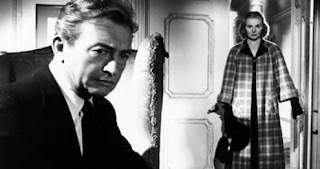 |
| Pia Zadora and Orson Welles -- in the same movie! |
In 1937 at the Arizona-Nevada border Kady Tyler (Pia Zadora) comes to live with the father she never knew, a man named Jess (Stacy Keach), who is the caretaker for an abandoned silver mine. Despite their biological connection, Kady and Jess are drawn to one another, something which bothers Jess but doesn't seem to bother the much too free-spirited Kady. Kady's dying mother, Belle (Lois Nettleton), comes calling, along with the man Belle ran off with, Moke Blue (James Franciscus). Then there's Wash Gillespie (Edward Albert), the son of the owner of the mine, and the father of Kady's baby and her fiance. How far will Jess go to get Kady for himself -- and is she really his daughter? Butterfly certainly holds the attention with its intriguing if bizarre situations, as well as some very good acting. Keach takes top honors, with Nettleton a close second, and Franciscus [Youngblood Hawke] also scores in some emotional scenes inside the mine. Pia Zadora [Hairspray] is not bad at all, although one couldn't necessarily call her a great actress -- her pouty looks and attitude fit the part. Orson Welles, of all people, shows up as a judge at two separate trials involving Kady and Jess, and is very effective and amusing. Edward Albert [Galaxy of Terror] is fine as Kady's boyfriend, and in one brief scene June Lockhart and Ed McMahon [!] play his parents -- McMahon is no actor. Stuart Whitman, however, makes his mark as a preacher. This forgotten movie is based on a novel by James M. Cain.
Verdict: Twisted, but interesting, love story. ***.



























